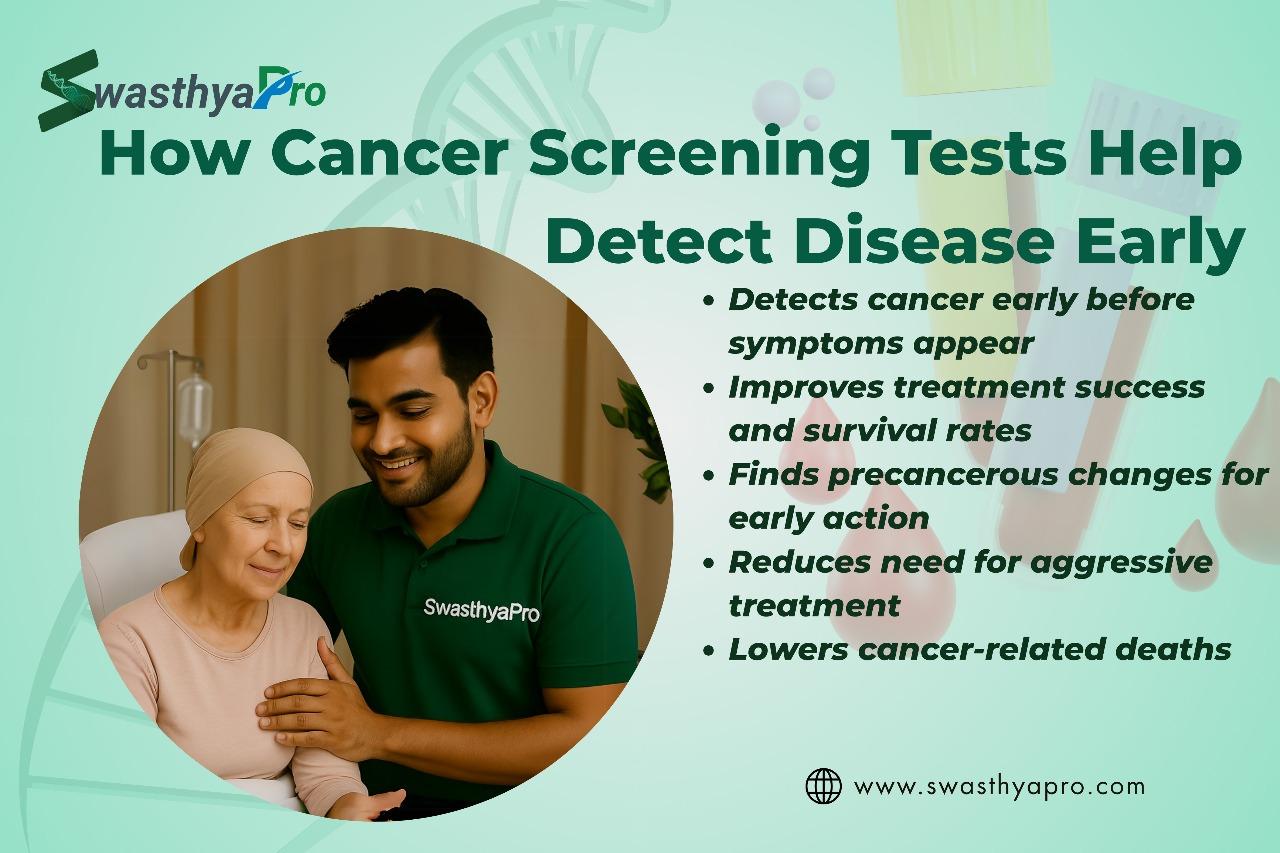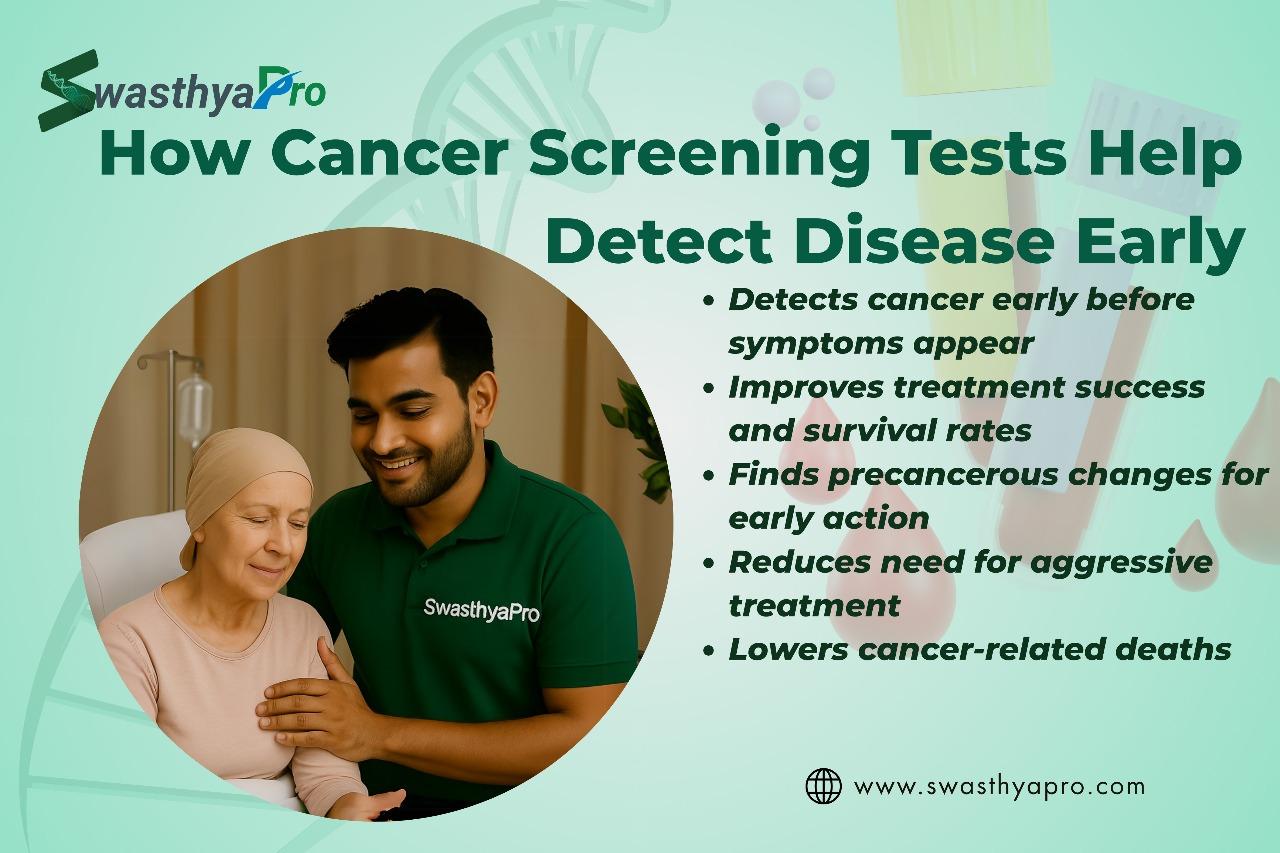What Does a Positive cancer screening test Really Mean? Next Steps Explained


Getting a cancer screening test is a proactive and wise decision — but seeing the word “positive” on your report can instantly trigger anxiety, fear, and confusion.
The truth is, a positive cancer screening test result does not mean you have cancer. It simply means that something abnormal was detected and needs further investigation. It’s not a diagnosis — it’s a signal.
This article will help you understand what a positive result means, why it happens, and what steps you should take next. Knowing this can help you stay calm, make informed choices, and move forward with clarity.
First, What Is a cancer screening test?
A cancer screening test is a medical exam used to check for early signs of cancer before symptoms appear. These tests are designed to flag potential abnormalities — not to diagnose cancer outright.
Common examples of a cancer screening test include:
-
Mammograms (breast cancer)
-
Pap smear + HPV (cervical cancer)
-
PSA blood test (prostate cancer)
-
Colonoscopy or stool test (colon cancer)
-
Low-dose CT scan (lung cancer)
-
Tumor marker blood tests (like CA-125, CEA, etc.)
Screenings catch signals early. But only diagnostic tests can confirm cancer.
What a Positive Result Really Means
A positive cancer screening test means that something unusual was found — but not necessarily cancer. For example:
-
A mammogram might detect a lump that turns out to be a non-cancerous cyst
-
A Pap smear might show abnormal cells that are not yet cancer, but may need monitoring
-
A PSA test might be elevated due to enlarged prostate, not cancer
-
A stool test might detect blood due to hemorrhoids, not colon cancer
In many cases, positive results lead to more testing, not immediate treatment.
Don’t Panic — This Is a Common Scenario
It’s important to understand that false positives are common in many cancer screening test types. These are results that appear abnormal but aren’t dangerous in the end.
Examples of common causes:
-
Inflammation or infection
-
Benign (non-cancerous) growths
-
Lab variability
-
Hormonal fluctuations
-
Past surgeries or chronic conditions
That’s why no doctor will rush to start cancer treatment after just one cancer screening test. They will first confirm with diagnostic follow-ups.
Step-by-Step: What to Do After a Positive cancer screening test
1. Talk to Your Doctor Immediately
Do not Google or self-interpret the report. Your doctor will:
-
Explain what the result means
-
Tell you how serious (or not) it is
-
Recommend follow-up tests if needed
This first conversation will likely ease your fears and give you a clear plan.
2. Get a Confirmatory Diagnostic Test
This might include:
-
Biopsy (to check actual tissue under a microscope)
-
CT, MRI, or ultrasound scans for further imaging
-
Repeat blood tests for confirmation
-
Endoscopy or colonoscopy for direct internal visuals
These tests are more accurate than a cancer screening test and help determine the next move.
3. Stay Calm and Rational
It’s completely normal to feel scared. But remember:
-
A positive result is not a final diagnosis
-
Many positives turn out to be non-cancerous
-
Even if cancer is found, early-stage cancers are highly treatable
-
You acted early — and that improves your chances greatly
Surround yourself with support and facts, not fear.
4. Follow Through with All Recommendations
Don't delay follow-ups. If your doctor suggests a biopsy or specialist consultation, act quickly. The sooner you move forward, the better your outcome — whether it's cancer or not.
Being proactive is your best tool.
When to Be More Concerned
Some results carry a higher likelihood of needing further action, such as:
-
High levels of specific tumor markers
-
Multiple abnormal test values
-
Suspicious growths seen on imaging
In these cases, doctors may refer you to an oncologist right away for deeper evaluation. But again, nothing is certain until confirmed by diagnostic testing.
What If It Is Cancer?
If your follow-up tests confirm a cancer diagnosis:
-
Stay calm and focused — you caught it early
-
Work with your doctor to understand stage, grade, and treatment options
-
Consider getting a second opinion
-
Prepare emotionally and practically — with support from family, friends, and therapists if needed
The good news is that your cancer screening test did its job — it helped catch it early, when survival rates are highest.
Final Thoughts
A positive cancer screening test result can be scary, but it’s not the end — in fact, it’s the beginning of a process that can lead to early action and recovery.
Think of it as a signal, not a sentence. It’s your body’s way of saying: “Pay attention. Something might be off.”
With the right mindset, medical support, and timely follow-up, a positive cancer screening test result can be the very reason you beat cancer before it has a chance.
- Art
- Causes
- Best Offers
- Crafts
- Dance
- Drinks
- Film
- Fitness
- Food
- Juegos
- Festival
- Gardening
- Health
- Home
- Literature
- Music
- Networking
- Other
- Party
- Religion
- Shopping
- Sports
- Theater
- Wellness



